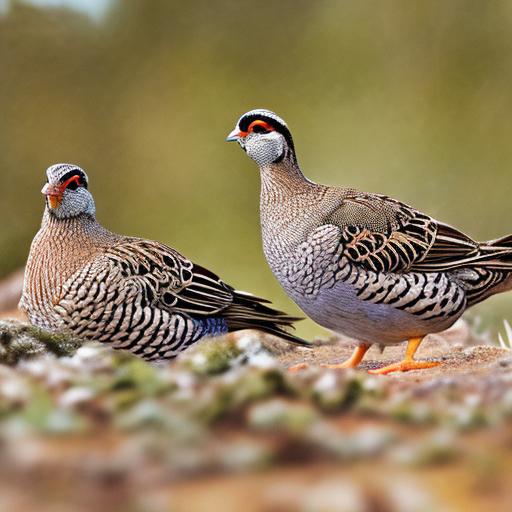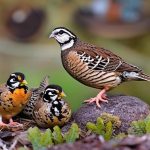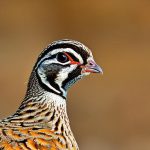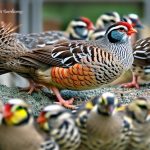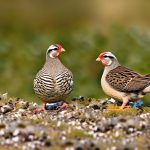Quail keeping has become increasingly popular in Australia in recent years, as more and more people are discovering the joys of raising these small, low-maintenance birds. Quails are not only a great source of fresh eggs and meat, but they also make charming and entertaining pets. Whether you are a seasoned poultry keeper or a complete beginner, keeping quails can be a rewarding and enjoyable experience. In this article, we will explore the ins and outs of keeping quails in Australia, from choosing the right breed for your environment to setting up a suitable habitat, feeding and caring for your birds, breeding and raising quail chicks, common health issues and how to prevent them, and legal considerations for keeping quails in Australia.
Key Takeaways
- Quails are a popular choice for backyard poultry keeping in Australia due to their small size and low maintenance requirements.
- When choosing a quail breed, consider factors such as climate, space availability, and egg or meat production.
- Setting up a quail habitat involves providing a secure enclosure, suitable bedding, and access to food and water.
- Quails require a balanced diet of commercial feed, fresh water, and occasional treats like greens and insects.
- Breeding quails involves providing the right conditions for egg laying, incubating eggs, and caring for the chicks, while also being aware of common health issues and legal considerations for keeping quails in Australia.
Choosing the Right Quail Breed for Your Environment
When it comes to choosing the right quail breed for your environment, there are several factors to consider. Different quail breeds have different requirements in terms of space, climate, and diet, so it’s important to do your research before making a decision. In Australia, some of the most popular quail breeds for backyard keepers include the Japanese quail (Coturnix japonica), the Bobwhite quail (Colinus virginianus), and the King quail (Excalfactoria chinensis). Japanese quails are known for their high egg production and adaptability to a wide range of climates, making them a great choice for beginners. Bobwhite quails are native to North America but have been successfully introduced to Australia and are prized for their delicious meat. King quails, also known as button quails, are the smallest of the three and are known for their colorful plumage and gentle nature. Before choosing a breed, consider factors such as the size of your backyard, the climate in your area, and your intended use for the birds (e.g., eggs, meat, or pets). It’s also important to check local regulations and restrictions on keeping quails, as some breeds may be prohibited in certain areas.
Setting Up a Quail Habitat
Setting up a suitable habitat is crucial for the health and well-being of your quails. Quails are ground-dwelling birds that require plenty of space to move around and forage for food. A spacious outdoor enclosure with access to fresh grass and soil is ideal, but if space is limited, a well-designed indoor setup can also work well. The key to a successful quail habitat is providing a safe and secure environment that meets the birds’ basic needs for food, water, shelter, and protection from predators. A good quality coop or aviary with solid walls and a secure roof is essential for keeping quails safe from predators such as cats, dogs, foxes, and birds of prey. The floor of the enclosure should be covered with a layer of clean straw or wood shavings to provide a soft and comfortable surface for the birds to walk on. Nesting boxes or shelters should be provided for the birds to lay their eggs and seek refuge from extreme weather conditions. Additionally, it’s important to provide access to fresh water at all times, as quails can quickly become dehydrated if they don’t have access to an adequate water source.
Feeding and Caring for Quails
Feeding and caring for quails is relatively straightforward, as these birds have simple dietary requirements and are generally low-maintenance. A good quality commercial quail feed is the best option for providing the essential nutrients that quails need to stay healthy and productive. Quail feed is available in both pellet and crumble form and should be offered in a clean feeder that is raised off the ground to prevent contamination. In addition to commercial feed, quails can also be fed a variety of kitchen scraps and garden greens, such as lettuce, spinach, and herbs. It’s important to avoid feeding quails any foods that are toxic to them, such as avocado, chocolate, and caffeine. In addition to a balanced diet, quails also require regular access to grit or small stones to aid in digestion, as well as calcium supplements to support egg production. In terms of general care, quails require regular cleaning of their coop or aviary to prevent the buildup of waste and parasites. Dust baths should be provided for the birds to help keep their feathers clean and free from mites. Regular health checks should also be carried out to monitor the birds for signs of illness or injury.
Breeding and Raising Quail Chicks
Breeding and raising quail chicks can be a rewarding experience for backyard keepers who are interested in expanding their flock or producing their own eggs and meat. Quails are prolific breeders and can start laying eggs as early as six weeks of age. To encourage successful breeding, it’s important to provide a suitable nesting area with clean bedding and privacy for the birds to lay their eggs. Once the eggs are laid, they should be collected daily and either placed in an incubator or left with a broody hen or in a dedicated brooding area. Quail eggs typically take around 17-18 days to hatch, after which the chicks will require warmth, protection, and access to food and water. A brooder box with a heat lamp or heat pad is essential for keeping the chicks warm during their first few weeks of life. The temperature in the brooder should be carefully monitored and adjusted as needed to ensure that the chicks are comfortable and healthy. In terms of feeding, newly hatched quail chicks can be fed a high-protein starter feed or finely ground commercial quail feed. As they grow, they can transition to a regular quail diet and eventually join the adult flock once they are fully feathered and independent.
Common Health Issues and How to Prevent Them
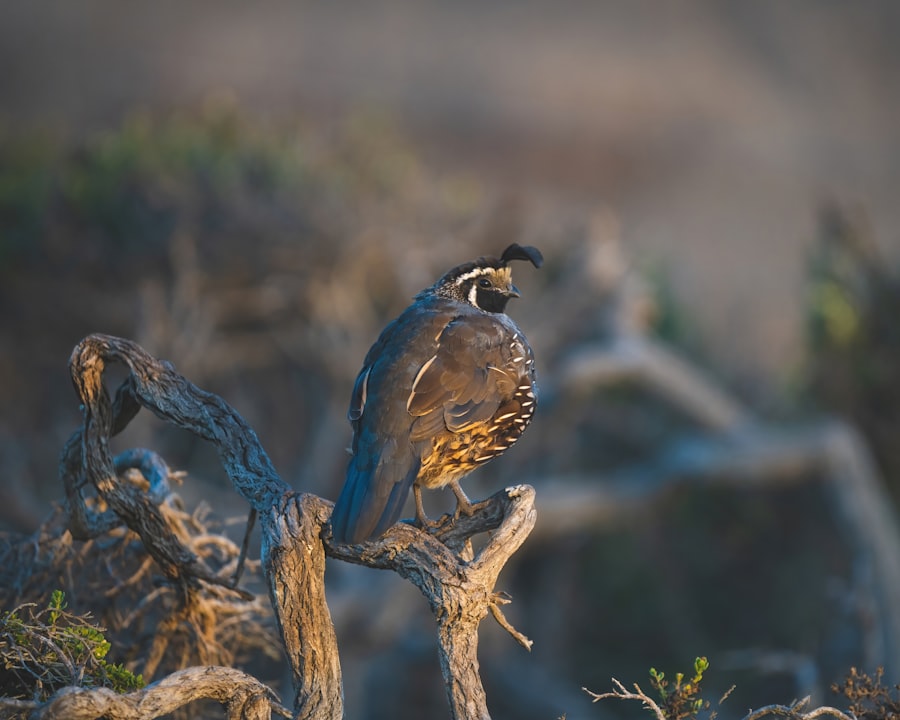
Like all animals, quails are susceptible to a range of health issues that can affect their well-being and productivity. Some common health problems that can affect quails include respiratory infections, parasites (such as mites and worms), egg binding, and injuries from predators or other birds. To prevent these issues from occurring, it’s important to provide a clean and well-maintained environment for your quails, with regular cleaning of their coop or aviary and access to fresh water at all times. Additionally, it’s important to monitor your birds regularly for signs of illness or injury, such as lethargy, loss of appetite, abnormal droppings, or changes in behavior. If you notice any signs of illness or injury in your quails, it’s important to seek veterinary advice as soon as possible to prevent the issue from worsening. In terms of parasite control, regular cleaning of the coop or aviary is essential for preventing mite infestations, while regular deworming treatments can help keep internal parasites at bay. Providing a balanced diet with access to grit and calcium supplements can also help prevent issues such as egg binding.
Legal Considerations for Keeping Quails in Australia
Before embarking on your quail-keeping journey in Australia, it’s important to familiarize yourself with any legal considerations that may apply to keeping quails in your area. In some parts of Australia, there may be specific regulations or restrictions on keeping certain quail breeds or on the number of birds that can be kept on a property. It’s important to check with your local council or agricultural department to ensure that you are compliant with any relevant laws or regulations before acquiring quails. Additionally, if you plan to sell quail eggs or meat commercially, you may need to obtain relevant permits or licenses from local authorities. It’s also important to consider the welfare implications of keeping quails and ensure that you are able to provide a suitable environment for the birds that meets their basic needs for food, water, shelter, and protection from predators. By familiarizing yourself with any legal considerations that may apply to keeping quails in Australia, you can ensure that you are able to enjoy your quail-keeping experience without running into any legal issues.
In conclusion, keeping quails in Australia can be a rewarding and enjoyable experience for backyard keepers who are interested in producing their own eggs and meat or simply enjoying the company of these charming birds. By choosing the right breed for your environment, setting up a suitable habitat, providing proper care and nutrition, breeding and raising quail chicks responsibly, monitoring for common health issues, and considering any legal considerations that may apply in your area, you can ensure that your quail-keeping experience is successful and compliant with local regulations. Whether you are a seasoned poultry keeper or a complete beginner, keeping quails can be a fulfilling hobby that provides fresh eggs, delicious meat, and endless entertainment. With proper planning and care, you can create a happy and healthy home for your quails in Australia.
If you’re interested in keeping quails in Australia, you may also want to learn about the incubation period for goose eggs. Understanding the incubation process is crucial for successful breeding and hatching. Check out this informative article on Poultry Wizard to gain valuable insights into this aspect of poultry care.
FAQs
What are quails?
Quails are small ground-dwelling birds that are part of the pheasant family. They are known for their small size, distinctive calls, and ability to lay eggs.
Why keep quails in Australia?
Quails are kept in Australia for various reasons, including their eggs, meat, and as pets. They are also popular for their ability to be raised in small spaces and their low maintenance requirements.
What do quails eat?
Quails are omnivorous and eat a diet that consists of seeds, insects, and small invertebrates. They can also be fed commercial quail feed that is available in the market.
How to keep quails in Australia?
Quails can be kept in Australia in a suitable enclosure that provides enough space, protection from predators, and proper ventilation. They also require a balanced diet, clean water, and regular monitoring of their health.
Are there any regulations for keeping quails in Australia?
In Australia, there are regulations and guidelines for keeping quails, including requirements for housing, biosecurity, and disease management. It is important to check with local authorities and agricultural departments for specific regulations in your area.
What are the common health issues for quails in Australia?
Common health issues for quails in Australia include respiratory infections, parasites, and nutritional deficiencies. It is important to provide proper care, hygiene, and regular veterinary check-ups to prevent and manage these health issues.
Can quails be kept as pets in Australia?
Yes, quails can be kept as pets in Australia. They are known for their gentle nature, small size, and unique calls, making them popular pets for bird enthusiasts. However, it is important to provide them with a suitable environment and proper care.
Meet Walter, the feathered-friend fanatic of Florida! Nestled in the sunshine state, Walter struts through life with his feathered companions, clucking his way to happiness. With a coop that’s fancier than a five-star hotel, he’s the Don Juan of the chicken world. When he’s not teaching his hens to do the cha-cha, you’ll find him in a heated debate with his prized rooster, Sir Clucks-a-Lot. Walter’s poultry passion is no yolk; he’s the sunny-side-up guy you never knew you needed in your flock of friends!

